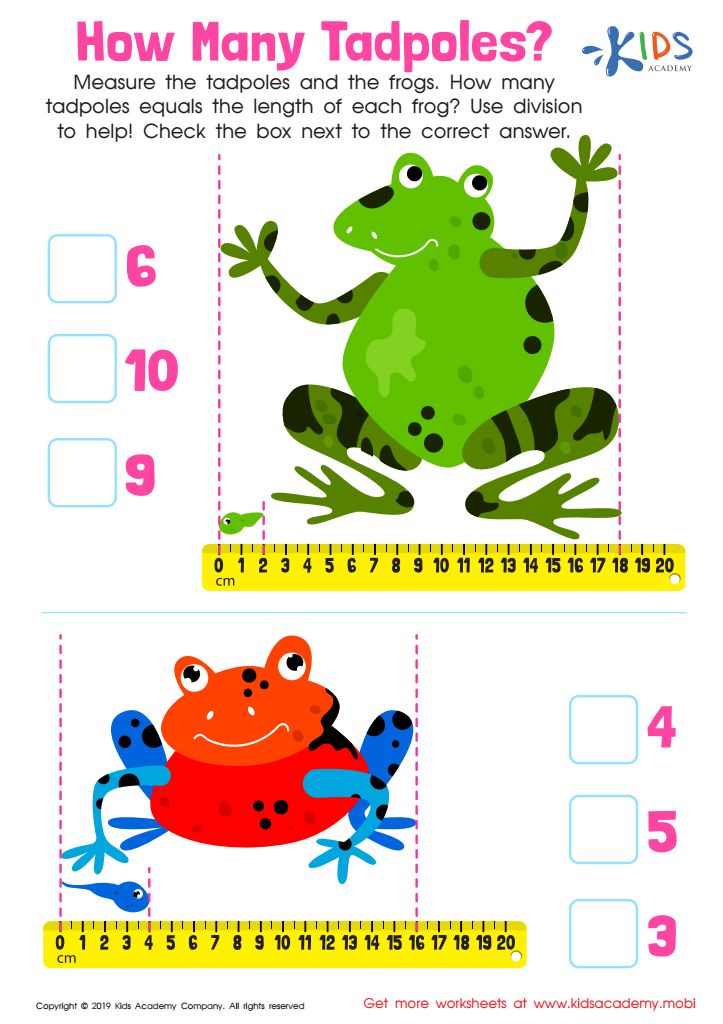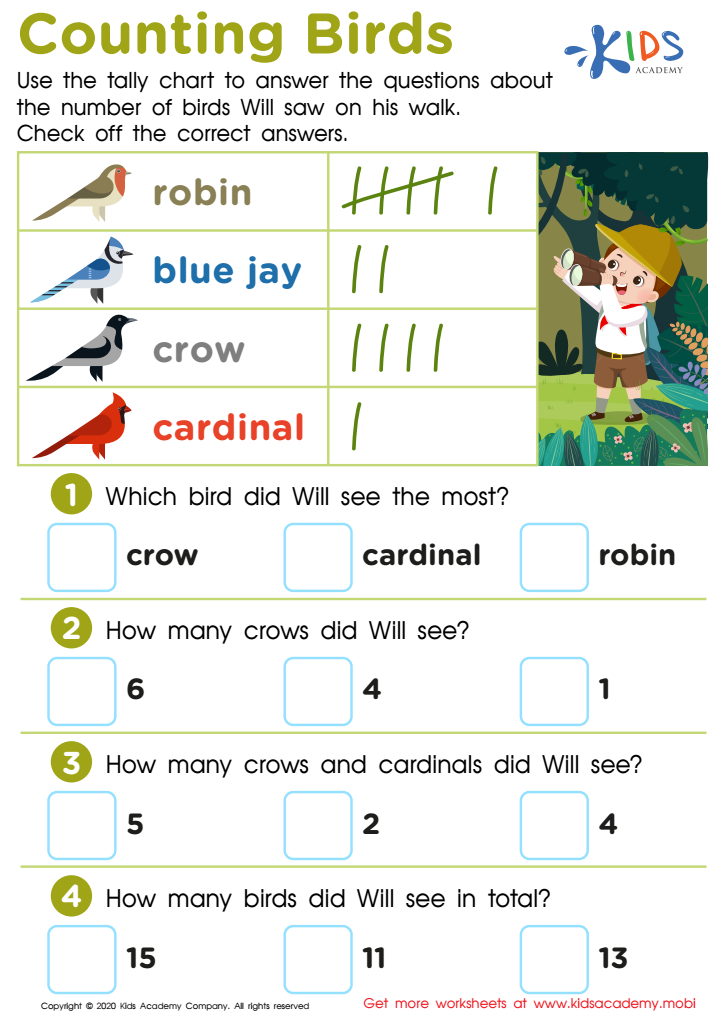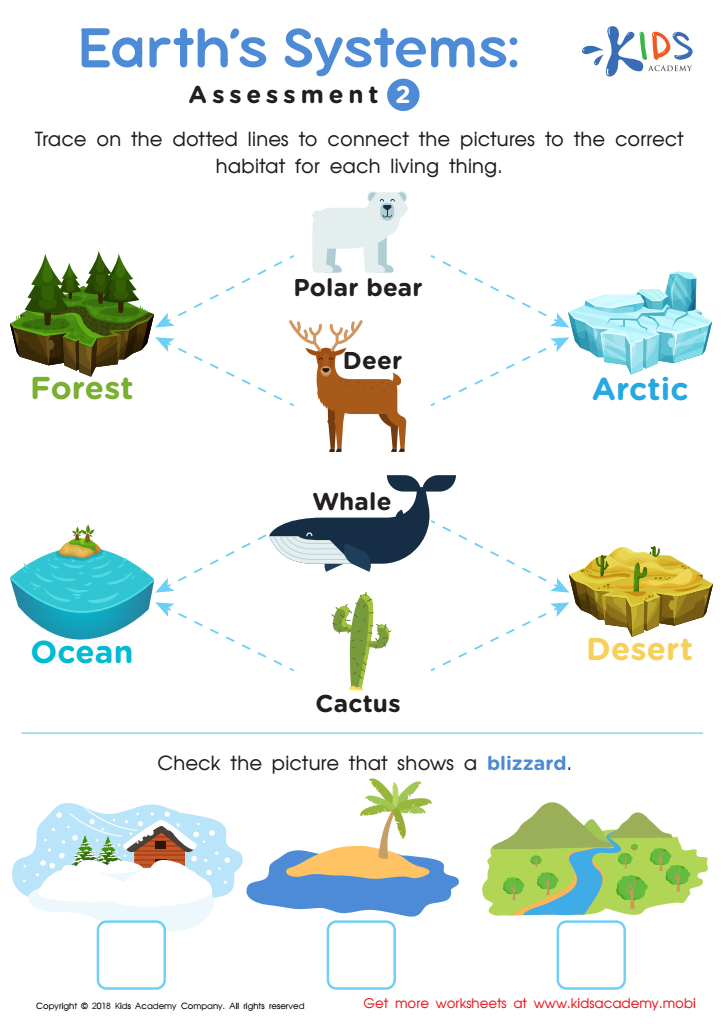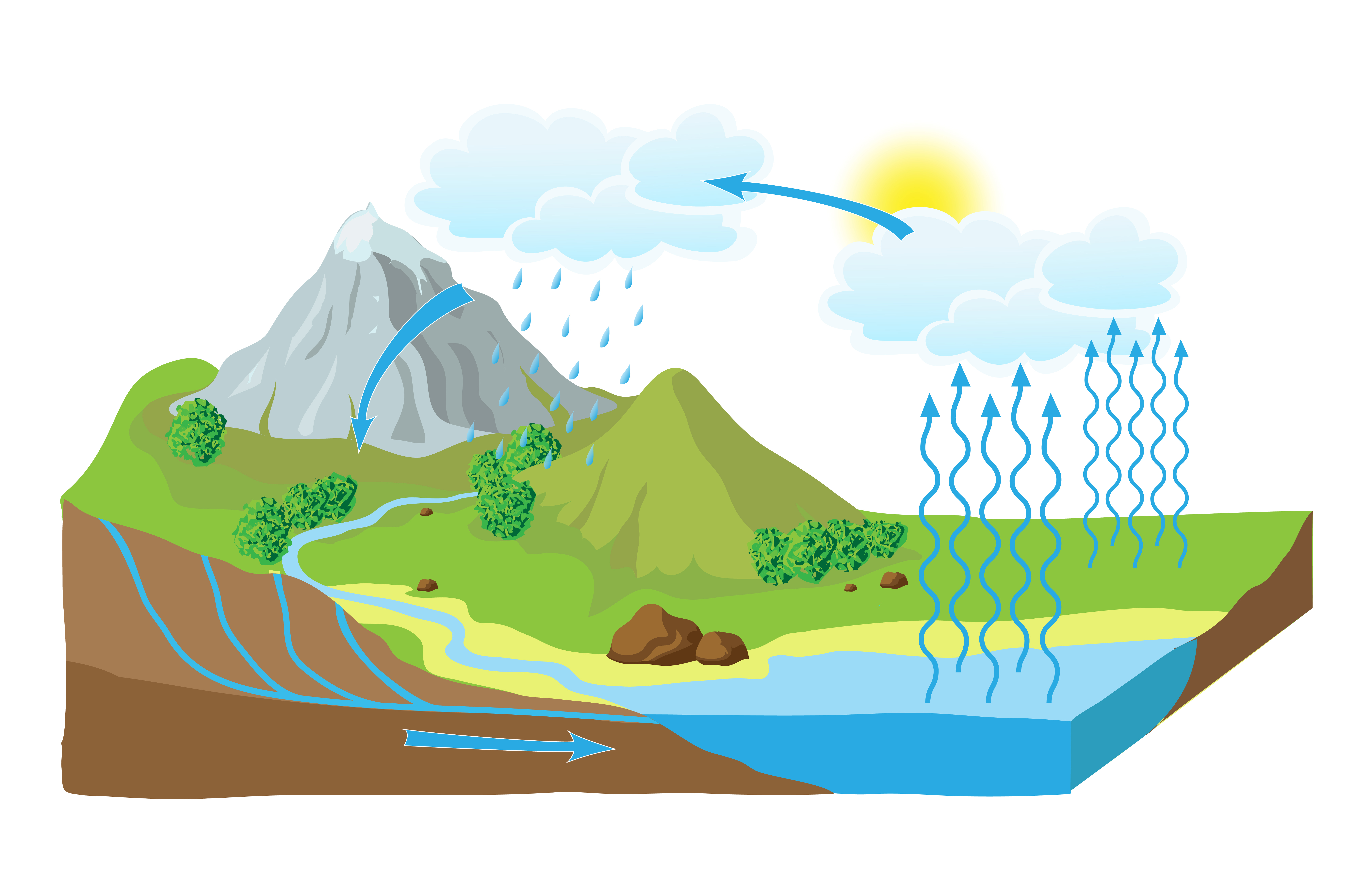Basic Addition Science Worksheets for Ages 3-9
4 filtered results
-
From - To
Discover engaging Basic Addition Science Worksheets designed for children ages 3-9 at Kids Academy! Our worksheets combine fundamental addition skills with exciting science concepts, encouraging young learners to explore numbers and the world around them. With vibrant illustrations and age-appropriate content, these printable resources make learning fun and interactive. Children will reinforce their addition skills while discovering interesting scientific facts. Ideal for both classroom use and at-home learning, our worksheets cater to various learning styles, ensuring a comprehensive educational experience. Spark curiosity and build foundational math skills with our diverse selection of worksheets today! Perfect for parents and educators alike!


How Many Tadpoles Worksheet


African Wildlife: Giraffe Worksheet


Counting Birds Worksheet


Earth's Systems: Assessment 2
Parents and teachers should prioritize Basic Addition Science for children ages 3-9 because it lays the foundation for essential mathematical skills necessary for future academic success. At this early developmental stage, children are naturally curious and eager to explore numbers, making it a prime opportunity to introduce basic addition concepts in a fun and engaging manner.
Understanding addition helps children develop critical thinking and problem-solving abilities essential in everyday life. It enhances their cognitive development by encouraging logical reasoning and pattern recognition. Moreover, strong mathematical skills can boost a child’s confidence, enabling them to approach more complex concepts with a positive mindset.
Incorporating Basic Addition Science nurtures early numeracy skills through interactive activities such as counting games, using physical objects for addition, and engaging storytelling that incorporates math. These hands-on experiences can make learning joyful and relatable, fostering a love for math from a young age.
Additionally, as children progress through school, a solid grasp of addition primes them for more advanced topics, setting them up for long-term academic achievement and a beneficial outlook on mathematics. By investing in this essential foundational skill, parents and teachers empower children to thrive both academically and in day-to-day situations.
 Assign to My Students
Assign to My Students



















